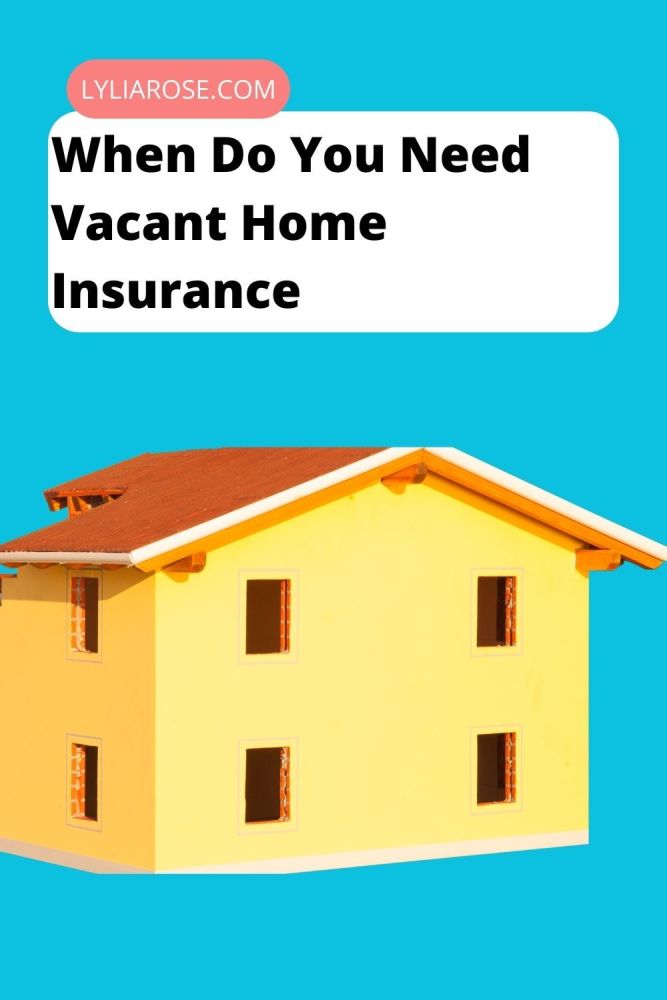When Do You Need Vacant Home Insurance
Posted on
A home is considered vacant if there is no one living there for more than a month. There are many reasons vacant properties could be at risk, including renovations, the transition between tenants, as well as incidents such as flood damage or vandalism. Some of these risks may not be covered by a traditional homeowners insurance policy.

Taking simple preventative measures is essential to protecting your vacant house from potential theft, vandalism, and natural disasters. Learning how to secure your home effectively can give you peace of mind, and help ensure that your property remains safe even when it is unoccupied. With the right strategy and a bit of extra effort, you can keep your empty house safe from harm.
What is vacant home insurance?
Vacant home insurance is a specific type of insurance policy that protects homes that do not have current residents. A regular home insurance policy is designed for a lived-in property where residents can easily call maintenance in case of a pipe burst, or turn on the lights at night so that burglaries are prevented.
However, a vacant home is at greater risk of being damaged if it is not maintained or checked on by someone regularly. But do you need vacant home insurance at all? Consult with an experienced broker to help you explore your insurance options if you think your vacant home is at risk of break-ins or other disasters.
Unoccupied vs. vacant homes
Every home insurance agency may have its own guidelines about whether a house is considered vacant or unoccupied. A house is considered unoccupied if you are taking a vacation or leaving your home vacant for a few months, but you still live in it.
You may not require a special insurance policy if this is the case. Insurance companies usually have a vacancy period of 30 days for unoccupied homes, but they can be extended beyond the 30-day rule, provided your insurance company is informed. However, it's essential to have someone regularly check on your home during this period.
A vacant home, on the other hand, is one that you don't plan to live in. It could have no utilities and possibly not even any furniture. These properties are often vacant and are available for rent or sale.
Vacancy permit: Insuring an empty house
Because of the extra risks associated with vacant homes, not all insurance companies provide coverage. Your reasons for leaving your home empty will vary depending on what you are doing. Some insurers offer special insurance policies to protect your property, depending on the reason it is vacant.
Your vacant home insurance may not provide the same coverage as regular home insurance. Vandalism, flood damage, and window damage are all possible coverages that may not be available to you. This is because insurers cannot take on the high risk. Talk to your broker to determine the extent of your coverage, and to discuss other options to increase your protection.
The average price of vacant home insurance
You may ask yourself, how much does vacant home insurance cost? Because of the risks associated with vacant homes, this type of insurance can be more costly than regular home insurance. The price of your policy will vary depending on factors like the length and reason for the vacancy, as well as the time between property check-ins.
However, you can expect to pay approximately 50% more than regular homeowners insurance. Your vacant home policy could run you about $1,440 per year, with an average home insurance cost of $1,342.
How to protect your home
Investing in a property can be a considerable expense, but when these spaces remain vacant it can become even more costly. To minimize the risks associated with this type of investment, here are some helpful tips:
- To amplify your home's security, it's essential to add extra locks on all of the doors and windows.
- Additionally, having an alarm system in place is highly recommended.
- During nighttime hours, you can also set timers for your lights.
- Keeping up with outdoor maintenance like cutting grass, raking leaves, and shovelling the driveway also helps make sure your property looks secure.
- Furthermore, it's best to remove any valuables from the property while they're not being used and to park your vehicle at the front regularly so it can be seen.
Conclusion
It can be risky to insure a vacant home due to possible burglary, extreme weather, or other problems. It is crucial to take all precautions to make sure your home is safe and secure when it is unoccupied.
You can achieve this goal by installing security cameras in your yard. It is possible to strategize the best placement for maximum coverage. They can be used as an extra eye and deterrent to keep intruders and burglars away.
Before you go...
Considering other types of insurance for your vacant property? Learn what terrorism insurance for your flat or home is and whether you might need cover.
